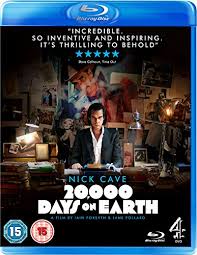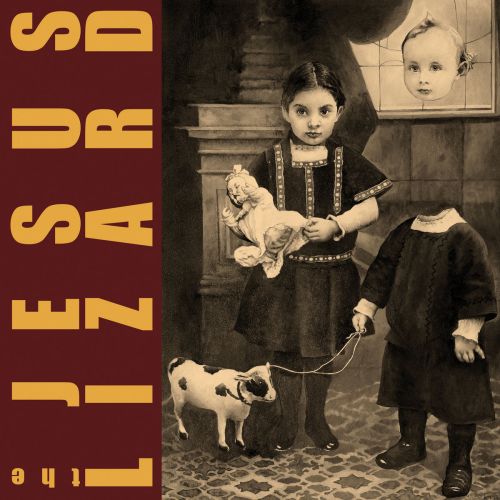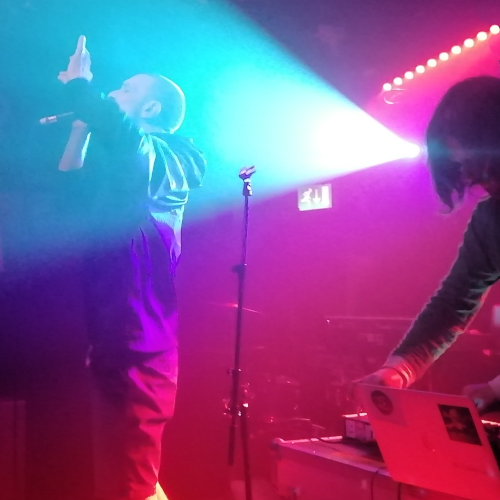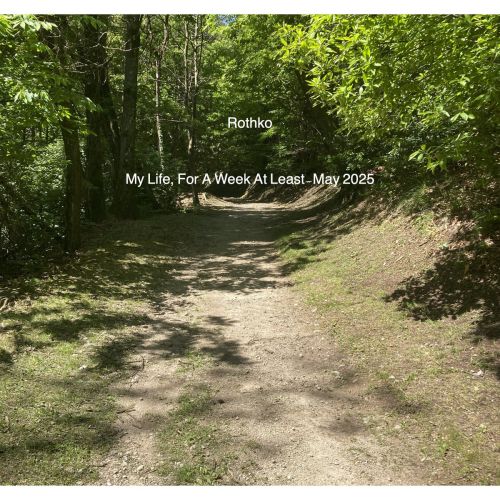 His wife mostly hides. I think she knows what he’s going to say, or rather what he’s not going to say. She’s central and peripheral in this tale and that seems about right since so is Nick. He’s in every scene and every scene is about him (or, more properly, for him) but we don’t get anything as ‘startlingly frank’ as you’d imagine. He’s there but he’s not there. 20,000 Days is a visit to the Court of Cave and, whilst gently mocking in places (the ‘Lionel Ritchie’ moment is a stand-out scene), it doesn’t attempt to get to grips with anything except what Cave thinks of himself. Nothing here is unguarded, especially the unguarded moments. It’s all as real as a fake therapy session.
His wife mostly hides. I think she knows what he’s going to say, or rather what he’s not going to say. She’s central and peripheral in this tale and that seems about right since so is Nick. He’s in every scene and every scene is about him (or, more properly, for him) but we don’t get anything as ‘startlingly frank’ as you’d imagine. He’s there but he’s not there. 20,000 Days is a visit to the Court of Cave and, whilst gently mocking in places (the ‘Lionel Ritchie’ moment is a stand-out scene), it doesn’t attempt to get to grips with anything except what Cave thinks of himself. Nothing here is unguarded, especially the unguarded moments. It’s all as real as a fake therapy session.
Of course, there’s poetry here because Nick knows his Rock Self well and likes tying himself in knots but there’s possibilities here to mix with the Legends; with the crow, with Euchrid, that could have elevated this story into something other. Nick glides through this film and the oddest thing about him is his entirely prosaic car, which also glides. Blixa and Kylie appear (I like that Kylie appears as she would in a cab, with the lights dimming) but they don’t say anything you’d be surprised at. Kylie’s not in the least ambivalent about her ambivalence; she’s got a career out of bad/good choices. I’d like to seen Nick and Blixa in a boat in the harbour, blasting out “The Weeping Song.” I’d like to have seen him recreating that fantastic scene from Wings of Desire when you hear his thoughts about his audience; that captures a truth that this film can’t hope to, or rather, doesn’t hope to. I’d like to have seen more people who didn’t get Cave, or didn’t like him, or who’ve been damaged by their association, or who simply couldn’t care less about him. We all leave broken people behind us, where are Nick’s? You can’t tell me he’s not considered these people, that kind of thing is right up his alley.
There’s moments in the opening of the film and in the closing where you get to see some of the power of Nick Cave as a performer but these moments aren’t enough and if all we’re going to get is a subtly hagiographic testimony then you need to see the life-force as well as the Word. Mostly, it’s frighteningly proficient, which acts like a kind of curse; the slickness untangles too much, too early. We already knew his bedroom was white.-Loki-



